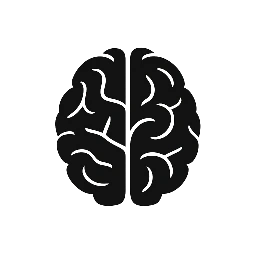
Anxiety disorders are among the most common mental health conditions worldwide, affecting millions of individuals across diverse age groups and backgrounds. Effective management of anxiety requires more than a one-size-fits-all approach; personalised care tailored to the unique needs of each individual has become a cornerstone of contemporary mental health treatment. Central to this personalised approach is the role of assessment, which serves as the foundation for understanding, diagnosing, and treating anxiety in an effective and compassionate way.
Understanding Anxiety Through Assessment
Assessment involves comprehensively evaluating an individual’s psychological, emotional, and sometimes physiological state. In the context of anxiety care, this process helps clinicians identify the specific type of anxiety disorder, its severity, triggers, and how it impacts the person’s daily life. Common anxiety disorders include generalised anxiety disorder (GAD), panic disorder, social anxiety disorder, and specific phobias, each requiring distinct therapeutic strategies.
Types of Assessment Tools
Several tools and methods are utilised in assessing anxiety. These include:
- Clinical Interviews: Structured or semi-structured interviews conducted by mental health professionals gather detailed information about symptoms, history, and functioning.
- Self-Report Questionnaires: Instruments such as the Beck Anxiety Inventory (BAI) or the Generalised Anxiety Disorder 7-item scale (GAD-7) allow individuals to report their symptoms and severity.
- Behavioural Assessments: Observations of behaviour in specific situations may provide insight into anxiety triggers and coping mechanisms.
- Physiological Measures: In some cases, assessments may include monitoring heart rate, cortisol levels, or other biological indicators related to stress and anxiety.
Personalising Anxiety Care Through Assessment
The data collected through a thorough assessment enables clinicians to tailor treatment plans that align with the individual’s unique profile. For example:
- Severity and Type Determination: Knowing whether a person suffers from mild social anxiety or severe panic disorder influences the choice and intensity of interventions.
- Identifying Triggers and Comorbidities: Assessment helps uncover specific situations that provoke anxiety and any co-occurring mental health issues, such as depression, which may require integrated treatment approaches.
- Monitoring Progress: Repeated assessments allow tracking treatment effectiveness and making necessary adjustments to care plans.
Enhancing Patient Engagement and Outcomes
Personalised assessment fosters a collaborative relationship between patients and clinicians. When individuals feel that their specific experiences are understood and addressed, they are more likely to engage actively in their treatment. This engagement can lead to improved adherence to therapy, medication regimens, and lifestyle modifications, collectively contributing to better outcomes.
Challenges and Future Directions
While assessment is invaluable, it also faces challenges such as variability in symptom presentation, cultural differences in expressing anxiety, and limitations of self-report tools. Advances in technology, including digital assessments and wearable devices, are promising developments that may enhance the accuracy and convenience of anxiety evaluation.
Conclusion
Assessment is a critical component in the delivery of personalised anxiety care. Assessments enable tailored interventions that improve treatment efficacy and patient satisfaction by providing a detailed understanding of each individual’s anxiety experience. As mental health care continues to evolve, integrating comprehensive and culturally sensitive assessment practices will remain essential in addressing the complex nature of anxiety disorders.

Leave a Reply